Labels We Love: Futureboogie Recordings
Head honcho Dave Harvey fills us in on the label's past, present and future. Bonus: Stream ten essential Futureboogie tracks.
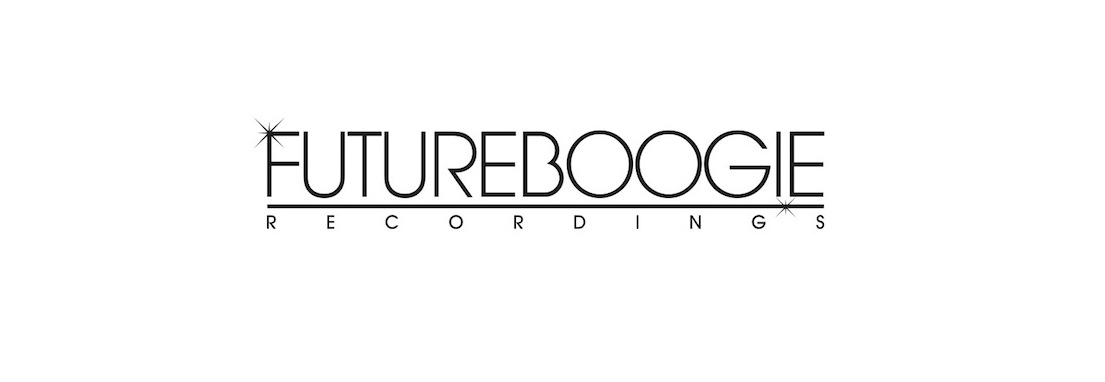
Labels We Love: Futureboogie Recordings
Head honcho Dave Harvey fills us in on the label's past, present and future. Bonus: Stream ten essential Futureboogie tracks.

Apparently, we’re not the only ones to love the U.K’s Futureboogie Recordings—when we asked Dave Harvey, who founded the label in 2011 with his longtime partner Steve Nickolls, to name five of his favorite Futureboogie tracks, he doubled down and gave us ten. (You’ll find the lot of them below, including Fernando‘s recently released “Mid Decade” and an about-to-drop stunner from Felix Dickinson and vocalist Robert Owens, “A Day’s Reality.”) And we can hardly blame him for having a hard time in narrowing down his choices, as one of the hallmarks of Futureboogie is the label’s consistency. Its artists—a list that has included, among others, Maxxi Soundsystem, Eats Everything, Mark E, PBR Streetgang, Christophe, Waifs & Strays, Downtown Party Network, and Behling & Simpson, not to mention Julio Bashmore (more on him later)—have routinely bestowed upon the label a particularly vibrant version of electronic house-disco-boogie hybridism. It’s undeniably party music, with a sound that’s a powerful catalyst for dancing and carousing—but at the same time, there’s a certain polished refinement to the Futureboogie vibe that gives the label’s output more depth that the term “party music” might imply.
The label’s roster of producers reap the benefits of belonging to the Futureboogie family. Take the aforementioned Felix Dickinson, left: “Futureboogie have always done a great job of pushing new music,” he says, “and although I don’t really consider myself a new artist, they’ve definitely done a good job of introducing me to a whole new audience who might not have had me on their radar before. They did a great job on my last record, Burning Flame, mostly by commissioning an amazing remix from Machete Savane which I absolutely love. It probably was the track I’ve played the most this last year, and I’m not usually one for playing my own records.”
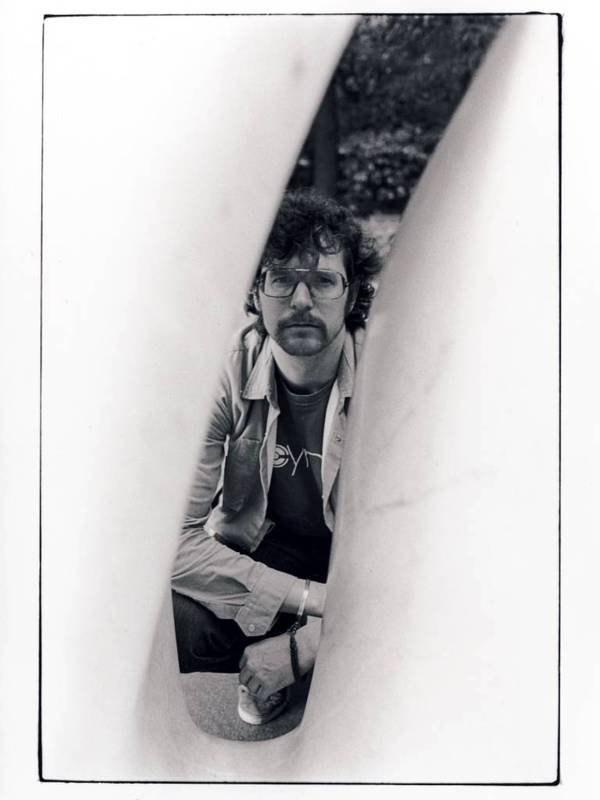
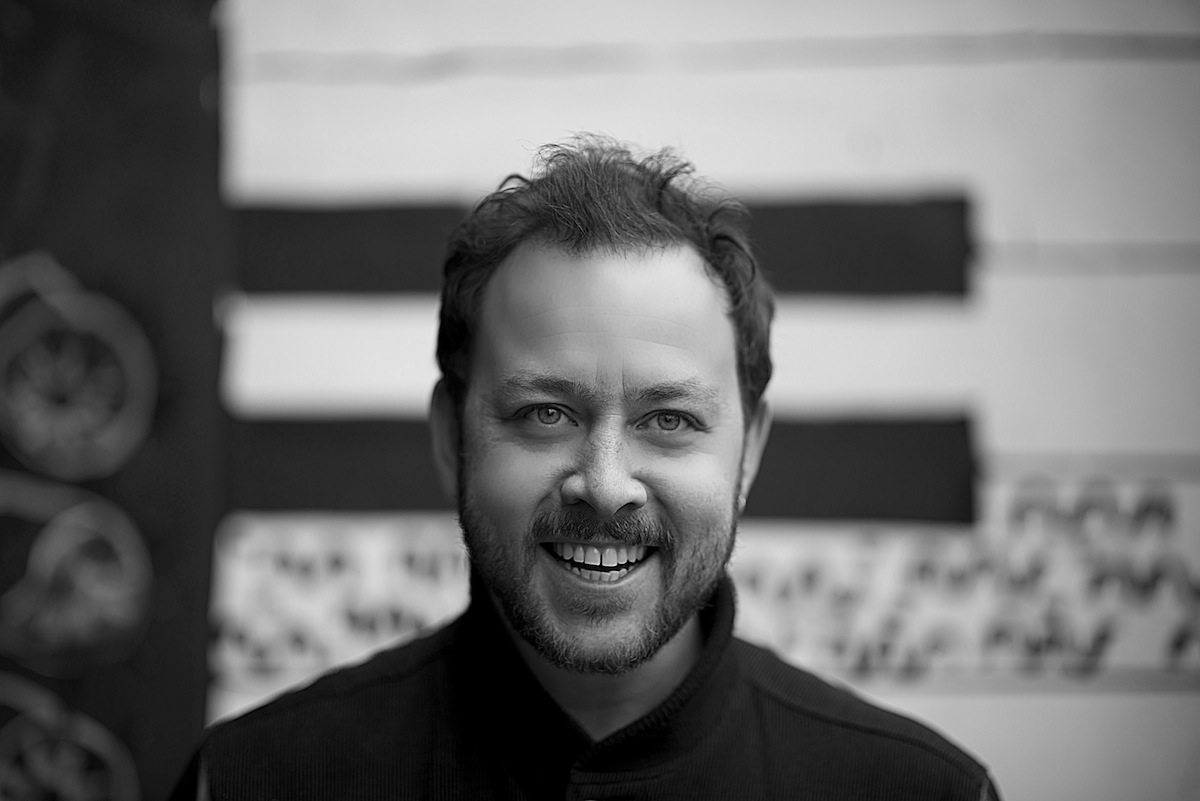
Futureboogie’s beginnings actually go back much further than 2011—and the Futureboogie umbrella covers more than the label itself, with a booking agency and management division part of the overall deal. Harvey, right, and Nickolls used to run everything together, but lately, Nickolls has concentrated on the agency end, while Harvey heads up the label. With Tom Paine, Harvey also runs a festival production company called Team Love—which, among other claims to fame, is behind Croatia’s new Love International Festival, the replacement for the beloved (and now defunct) Garden Festival. But it’s Futureboogie Recordings that we’re concerned with here, and we caught up with Harvey in his home base of Bristol to fill us in.
Before we get to Futureboogie, I have to ask—didn’t you used to go by the name El Harvo?
Yeah, but I didn’t like that name in the first place! It was from the first gig I ever had with my name on the flyer. The person who booked me was an old hardcore guy, and he was like, “You’ve gotta have a name, bruv! You’ve gotta have a name!” He came up with that—and then I was stuck for with it for far too long. One year in Croatia, the Faith guys were going, “What’s up with this fucking name, Dave? Get rid of it!” I realized I had to finally sort it out, and I phased it out quietly.
Futureboogie Recordings dates back to 2011—but the Futureboogie story starts much earlier, right?
Yeah, we’re old. (laughs) Basically, me and Steve Nickolls started doing these very small nights together in Leicester in the late ’90s, which were kind of on a broken-beat tip. Then we moved to Bristol, and started doing a night at a very good nightclub that no longer exists.
Which club was that?
It was called Level. I suppose the night was somewhere in the Gilles Peterson spectrum; we’d have people like Carl Craig one month, but then the next month we might have people like Bugz in the Attic, Seiji, Rainer Trüby, Jazzanova, Attica Blues, Kruder & Dorfmeister, or Gilles himself. It was pretty eclectic, with house, techno, disco, or whatever.
What convince you and Steve to finally start a label?
We had been talking about it for years, but it was just one of those things that never happened. But then, I met Matt Bashmore [a .k.a. Julio Bashmore] at a night he was DJing at, and he put on “Father Father.”
That ended up being your first Futureboogie release, right?
Yeah. I was like, “Hey, what’s that?” I was thinking it was some old house thing, and he said, “Oh, it’s just this thing I banged out this week.” I was thinking, bloody hell—it’s really good! I asked him if he was putting it out, and he said, “No, no, I wasn’t really thinking about that.” Anyway, we kind of became friends, at some point we asked him if we could put it out on the label we were starting—and he said, “Well, I want to start a label as well. Maybe I should just join you guys!”
He was very involved with the label in the beginning, right?
Definitely for the first year or so; he was partner in it, really. But his trajectory and our trajectory were a bit different; he was getting offered a lot of stuff under the Bashmore name, and we were getting offered a lot of stuff under the Futureboogie name. He’s obviously gone on to do very well for himself. He’s the one who obviously made the right decision! (laughs)
But Futureboogie seems to be doing pretty well, too.
Oh yeah, totally! We’re doing okay.
“A better strategist might have varied the sound a little bit more, so that Futureboogie would be harder to pigeonhole—but we’re feeling this music, so why not?”
A lot of Futureboogie’s music are what could be called “party tracks,” though they’re party tracks that possess a bit of refinement and depth. Is that the kind of sound that you’re consciously looking for, or does it just end up that way by chance?
First, we do like music that people want to dance to in clubs; that’s the whole point of Futureboogie. But when we started, we did have visions of being a more varied, daring label—we thought we’d maybe put out some weird Balearic thing, and then the next release might be a straight-up club track or something. But it turned out that all of our friends, the ones who were offering us music, were all making music of a very similar vibe. We were conscious that we were putting ourselves in a kind of channel where we’d be known for nothing else—but we really like this music and really wanted to put it out. A better strategist might have varied the sound a little bit more, so that Futureboogie would be harder to pigeonhole—but we’re feeling this music, so why not?
And it’s not a bad pigeonhole to be in, really.
But you know what it’s like—there’s quite a bit of snobbery in any kind of music, but particularly in underground dance music. I think a lot of artists are paying for that attitude; they’ll have their little hype moment, and now they’re considered a bit too well known—or a bit too populist or accessible, maybe—to be cool or to be underground. People are always looking to be more underground or more left-field. I spend way to much time worrying about this! (laughs)
So will we be hearing, say, any footwork tracks on Futureboogie, in an effort to be more left-field?
Oh no—that stuff is too fast for me to dance too!
That brings up an interesting point—a lot of Futureboogie tracks are of a fairly moderate tempo, with most releases well under 125 beats per minute or so.
I would be need to take amphetamines for anything much faster. I’m too old for that. But also, I grew up listening to soul and funk, among other things—a lot of it was in the 120- to 124-bpm area. What can I say? I just like it a bit slower.
The label’s look kind of reflects the music; it’s fun, but also clean clean and cool. Who developed the aesthetic?
That’s actually Christophe; the look is really down to him. He’s one of my best friends, and he’s an integral part of Futureboogie—I’m always bouncing ideas off of him.
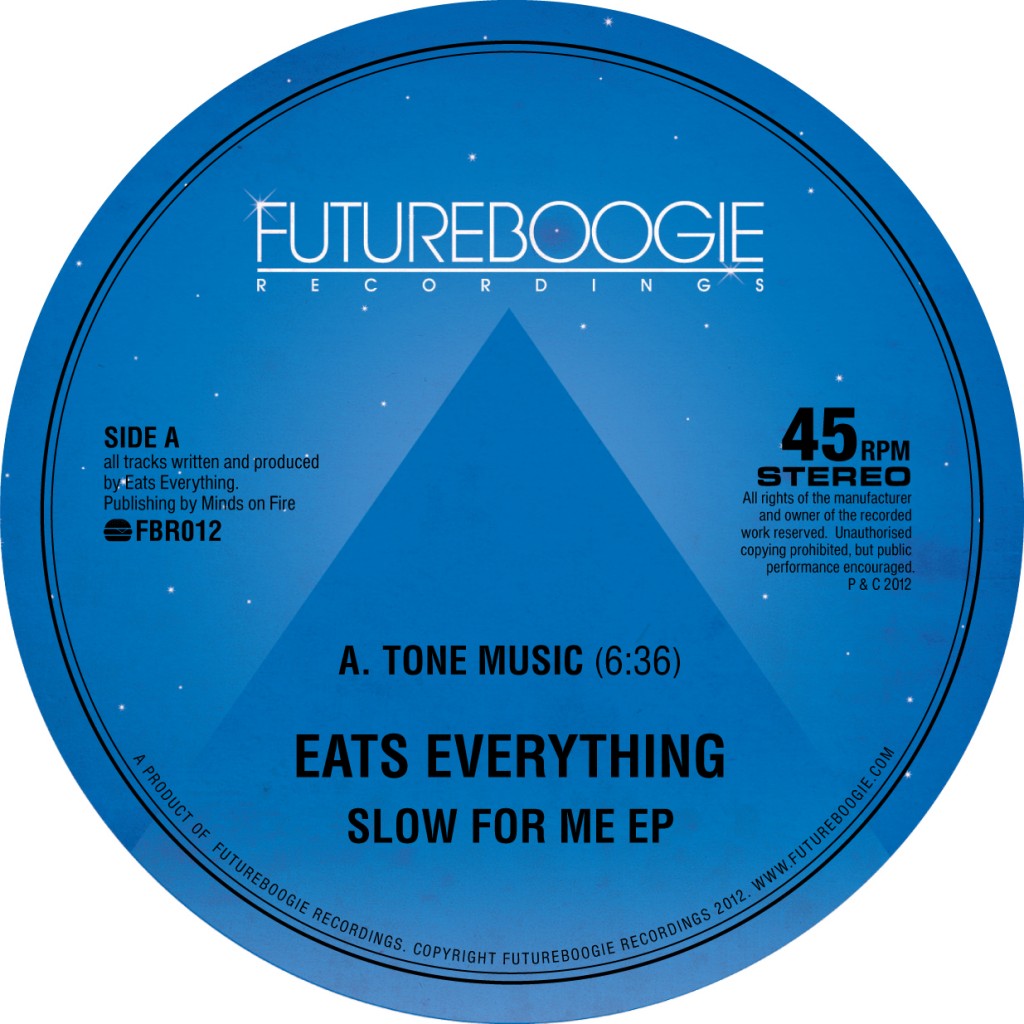
In the past year or so, it seems like you’ve really upped the game with the artwork, with full-on cover art for most Futureboogie releases.
I don’t know how to say this without sounding like a twat…but we’ve always been into good design and interesting art. At first, we wanted to go with that clean, uniform aesthetic—that classic Futureboogie look. But it was a combination of wanting to sell more records—we wanted to make them more eye-catching on the shelf—and the fact that we just wanted to experiment a bit by including some really good artwork.
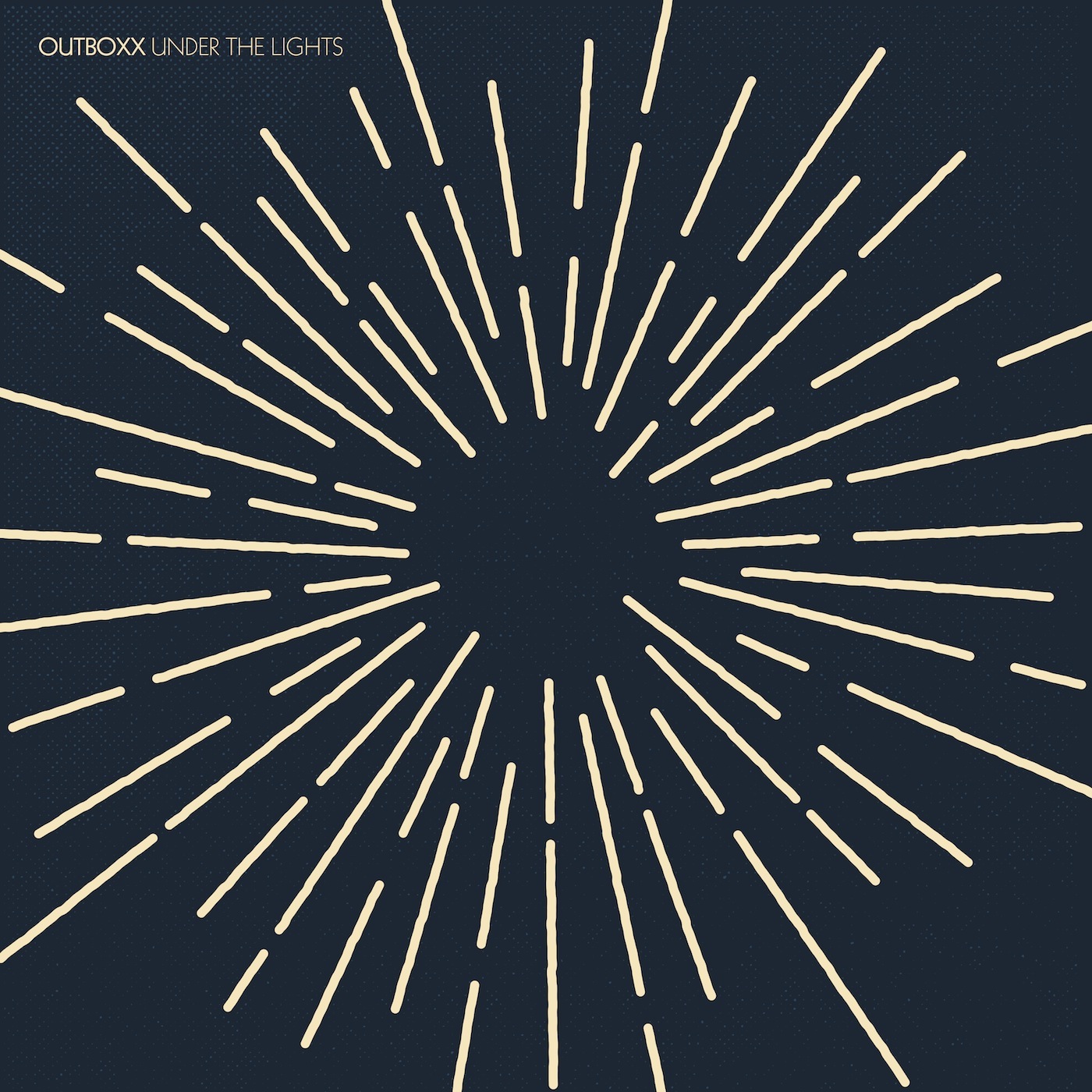
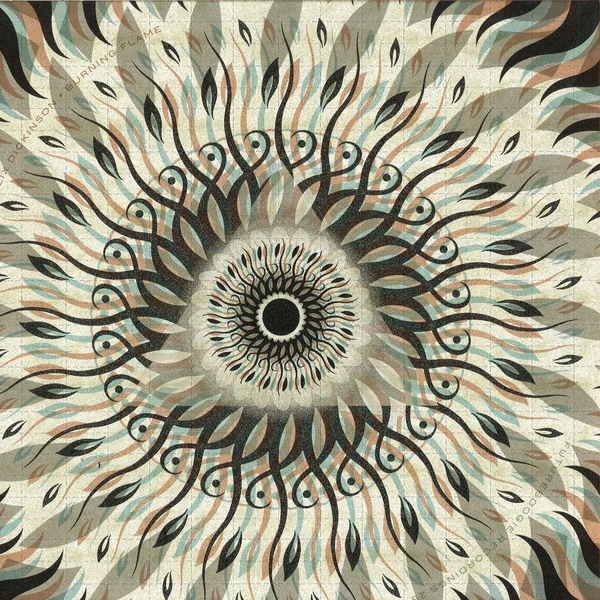
You’re in Bristol—do you feel that being based there, rather than London, has been an advantage, disadvantage, both, or neither?
An advantage, definitely. This point has been belabored a bit, but Bristol is great. It’s a very small community, but it’s a big enough city that you can do interesting and exciting things; there’s the opportunity to be creative and have people react to it. There’s also this great cross-pollination between different people and between different kinds of music. And producers have the space to be producers without having to worry so much about how to pay your rent; it’s a bit cheaper than London. All that goes into the pot to create a very fertile environment for creativity. Also, in London, we’d have to compete against 20 new labels a week! It’s easier to shine here than it is in London, as long as you’re doing something decent.
“Some days, I’m like, ‘Oh, I don’t know if I’m up for this! Where is this going? What are we doing? Are we relevant? Do people care?, And then on other days, I’m like, ‘Right, brilliant!'”
So what are the next steps for Futureboogie Recordings?
You know, it depends what day of the week you catch me on. Some days, I’m like, “Oh, I don’t know if I’m up for this! Where is this going? What are we doing? Are we relevant? Do people care?” And then on other days, I’m like, “Right, brilliant!” At the minute, we’ve got five or six strong releases—really great music—coming up that I think will be well received. So we’ll just continue on doing that.
How about albums?
I’m keen to do some compilations. A lot of our crew, like Christrophe and Felix Dickerson, have got amazing record collections and a brilliant wealth of musical knowledge. I know for a fact that they could put some really good compilations together—but I’m not sure if compilations are just another way to lose money or not. (laughs) As far as original albums…I’d love to, but it’s really only if someone comes to us with the right music. I’m not interested in doing an album that’s basically a collection of eight twelve-inch singles; I’m not sure if there’s much point to that. But really, I think we’re more of a twelve-inch label.
And DJs are thankful for that.
We’re really just about putting out music for dancefloors, I guess. And I don’t really see that changing.
Futurboogie releases are available through Bandcamp; A Day’s Reality, from Felix Dickinson featuring Robert Owens, comes out December 11.

